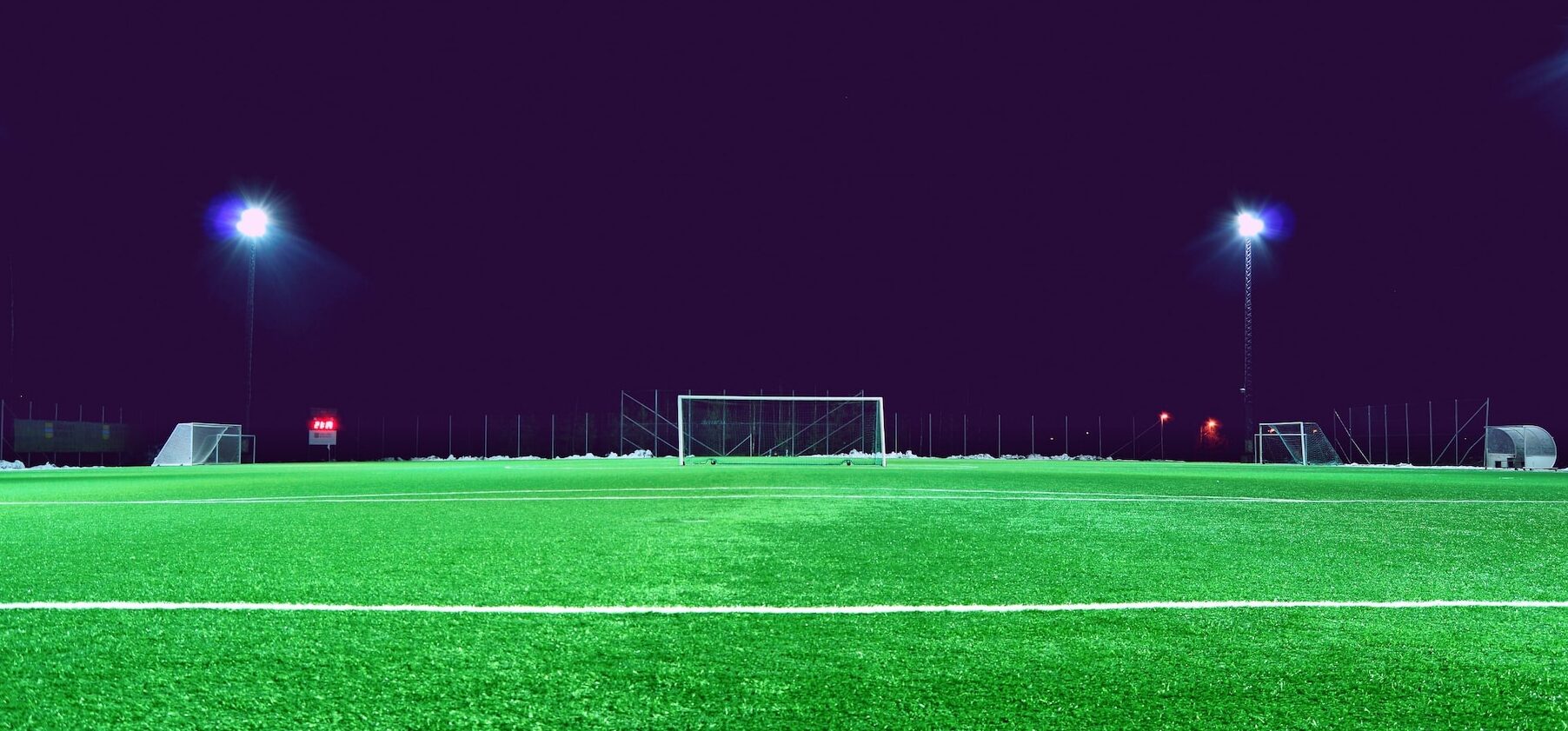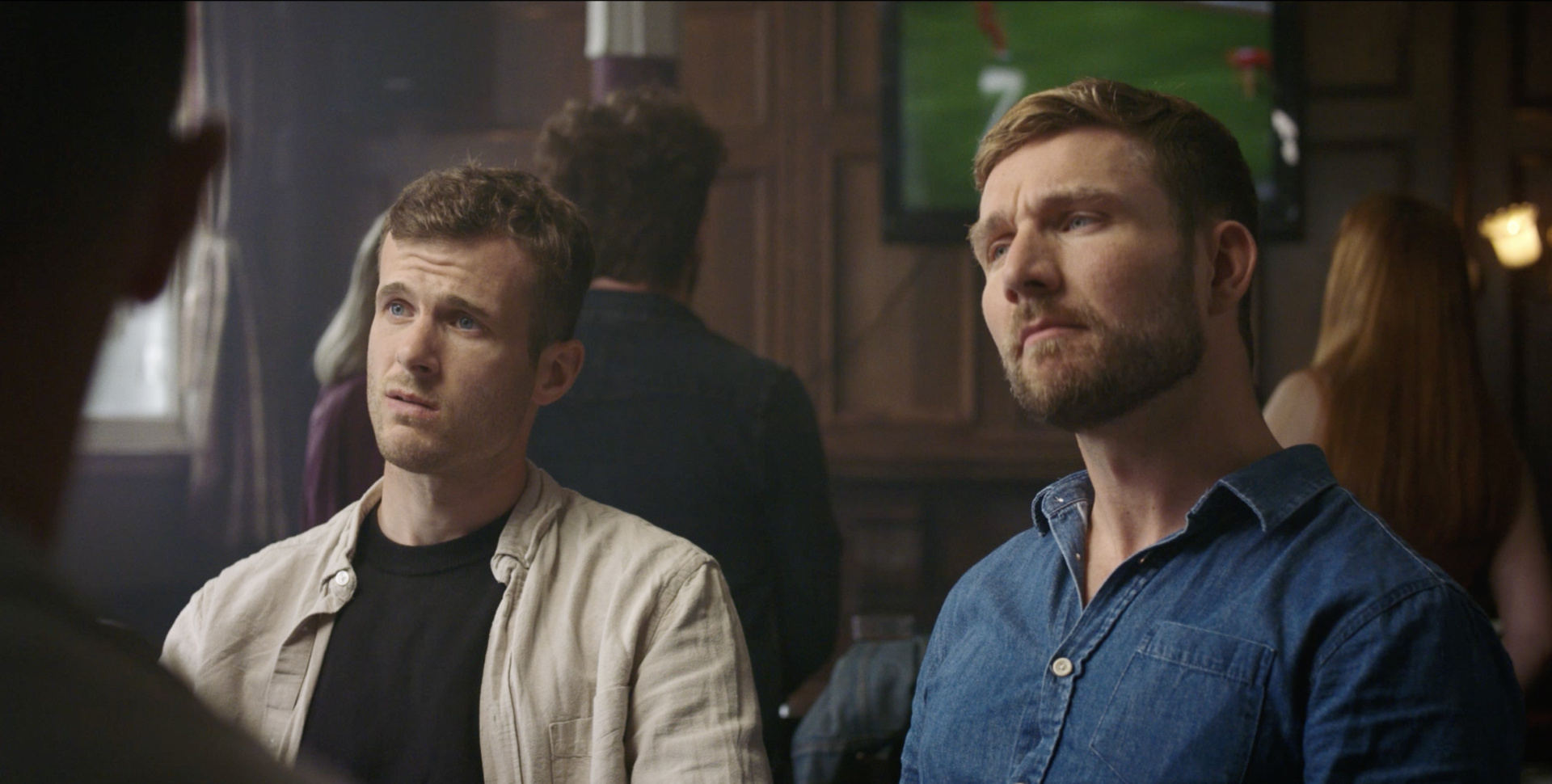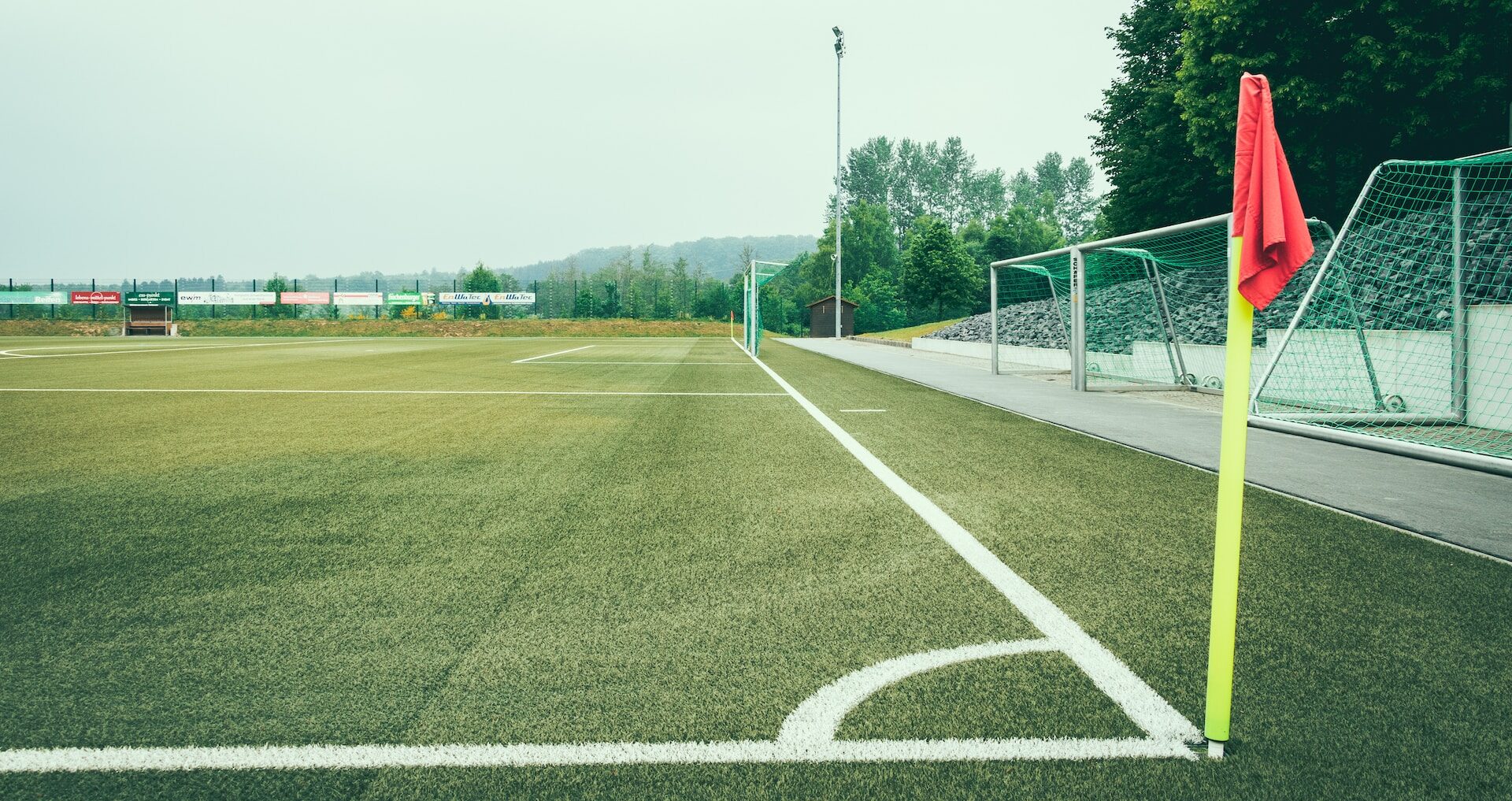
Old Firm Facts: How football can help tackle male sexual entitlement
Adam Miller aka @Oldfirmfacts1 is a prominent voice in Scottish football. Writing for THAT GUY, Adam looks at how football can help tackle male sexual entitlement.
Content warning: Please note some strong language is used.
Every couple of weeks, you’ll see a particular video on your Twitter timeline. The face and place may change, but the formula remains the same.
The camera follows a young boy up some steps, before zooming in on the wide-eyed child’s face as he sees a football pitch for the first time.
It’s love at first sight, and these videos resonate with us every time because we’ve all been that boy.
A whole world of glamour and possibilities opens up before him, his puppyish enthusiasm yet to be brutally stomped on by last-minute heartaches, tedious tactical stalemates and video assisted referees.
We all remember our first games, and so much of our personality is forged in that world of football which we take our first steps into that day.
Sadly, within that world we are sometimes exposed to bad examples from those with the biggest platforms from which to set good ones.
When the highest-profile British footballer of the last 30 years isn’t topping up his nine-figure net worth by saying ‘actually, the handful of people who I met in the country ranked 127th out of 164 in the Freedom Index seemed happy’, a world famous player who once said “the idea that anyone would feel excluded from playing or attending a football match, simply for being and identifying as who they are, blows my mind…we should listen, support the LGBT+ community and work to make it better” is being paid a reported £350,000 a week to play in a country where same-sex sexual activity is criminalised.
While many of us call out those players, those voices are drowned out by industries determined to prop up these powerful men who make so much money for so many.
A streaming service will commission a PR exercise disguised as a documentary, and a national team manager will pretend not to understand why their player is being booed.
Beyond sportswashing and selling out, there is another area in which football continues to set a bad example.
The That Guy campaign, now in its third year, focuses on male sexual entitlement. Men who display attitudes of sexual entitlement are at higher risk of sexual offending, and sexual entitlement flourishes in an environment where claims of rape and sexual assault are trivialised, ignored, denied, diminished or exploited.
Sadly, football continues to be one such environment.

Time and again, so many in the game respond inappropriately to claims, to confessions made to lawyers, to findings in civil cases, and to harrowing audio clips.
Clubs stand by these players until the backlash becomes too overwhelming, and then the players find another club.
Women are called liars, bitches and money-grabbing whores on social media. Transfer journalists will tweet relentlessly about the player’s potential next destination, cynically exploiting the outrage about serious allegations in order to boost their engagement stats.
Since the first year of the That Guy campaign, we have talked about the damage that is caused by some football fans looking at sexual assault and rape stories through the prism of whichever football team they support.
That can mean condemning a player from a rival team while condoning similar behaviour displayed by a player from the team they support.
It can mean exploiting the victim’s ordeal for ‘banter’ or a dig at an opponent, as we so often see with ‘you know what you are’ chants directed at players who have been accused.
A horrific experience for the victim should not be fair game for point-scoring by football fans, and there is a strong likelihood that there will be victims of sexual assault sitting in those stands, being reminded of their own experiences in a space where they are seeking escapism.
It also means, as stated in the campaign’s first year, that a woman can become a victim twice. First there is the assault, and then there is the victim-blaming and abuse that she is subjected to by fans of the player in question.
Speaking at the Scottish Parliament earlier this year, Rape Crisis Scotland chief executive Sandy Brindley said: “In terms of being an ally, in terms of violence against women, where it can really test you is if the person being accused is someone that you revere or care about, or that you’ve admired.
“How you behave in those circumstances is the real test of whether or not you’re an ally.”
Football has a way of seducing us into forgetting our principles.
With boys and young men frequently exposed to such harmful behaviour, it is up to us to be positive role models.
When larger societal issues encroach on football, it can make for awkward conversations. When it comes to tackling male sexual entitlement, however, awkward conversations are necessary.
Have I ever said something or acted in a way that has made a woman uncomfortable? Have I looked the other way when friends or colleagues have acted inappropriately towards women? Have I sung ‘he’s one of your own’ while women who themselves may have been victims sit near me?
Laura Bates is a feminist writer who created the Everyday Sexism Project website in 2012. Speaking to the Guardian in October, she said: “A cultural shift is needed in the most minor, normalised sexist behaviour and banter.”
Spartans FC winger Danny Denholm has been thinking about these issues, and featured in last year’s Don’t Be That Guy video.
He says: “I’ve learned that I am not perfect, but that I try to do the right thing. I have learned not to be so defensive when others may mention a behaviour I might have shown in the past.
“To take feedback on board from my peers and family and think ‘you know, they might have a point here’ and try to be conscious of this moving forward.
“I think we are all probably guilty of hypocritical behaviour – I certainly have been – and it’s important to own it when you’ve shown it.”
“From the first two years of the campaign, I’ve learned that I’ve got it way wrong in the past, and I’ve learned that real change starts with self-reflection”, says Blethered podcast host Sean McDonald.
Sean, who featured alongside Danny in that video, continues: “It’s uncomfortable and it’s not easy to do, but it’s where progress begins.
“There’s no shame in self-reflection. It’s the first step to progress.”
Danny and Sean were joined in that video by writer and broadcaster Alistair Heather, who says: “It was sobering to realise how little I’d grown and developed, and how dodgy the culture I had emerged from was.
“It’s taking me time to read, listen and process, and I would say that being in the campaign has been a really useful propellent to ensure I keep learning, growing and working to be a better ally.”

Danny Denholm and Ally Heather
This is not about shaming or retroactively punishing men for off-colour jokes, or self-flagellating into a state of permanent embarrassment.
It’s about recognising the impact that our behaviour can have on women, being the best men we can be and helping the boys and men in our lives be active allies in the fight against misogyny.
We may not personally be the types to talk inappropriately to or about women, but by laughing along or saying nothing, we perpetuate the idea that misogyny is acceptable. If we do or say nothing, we’re part of the problem.
In the two years since this campaign began, some of us will have become fathers or uncles. We might have taken a young boy to their first match, or a young man for their first pint.
What kind of example do we want to set for our sons and nephews? If we’re engaging in behaviour that says treating women as sex objects or somehow lower than us is acceptable, there are two potential consequences, and neither of them are desirable.
One is that your son, nephew or even younger work colleague is ashamed to be out in public with you. There is surely little more terrifying to the male ego than knowing your son is pointing you out to a woman behind a bar and saying ‘I’m so sorry about him, he just gets like that after a few’.
The other is that the same attitude takes hold in their young, impressionable mind, and so male sexual entitlement is passed down from one generation of men to the next, and in turn fear and discomfort are passed down from one generation of women to another.
At the Scottish Parliament, specialist in bystander engagement and former police officer Graham Goulden talked of “making the connection between words and language, and other forms of violence and abuse in society”, and stressed the importance of “that sense of loyalty men have to their friends. ‘I’m not being a good friend if I don’t say something to them’.”
He continued: “It’s a really hard conversation. It’s about just bringing it up in conversation. Do you have to speak to your friend in front of everybody else and say ‘hey, that was wrong’?
“No, maybe just change the subject and have a conversation with them on their own.”
Denholm says: “I am still slightly concerned about pockets of younger lads in football being swayed by men’s rights grifters on social media.
“Personally, I think the best way to combat this is to chat to these people individually in a non-judgemental manner without being preachy. I’ve seen too many get defensive and double down when called out publicly.”
What does a good role model look like? For Denholm, it’s “someone who walks the walk rather than talks the talk. I think it’s easy to say what you should do, but to put it into practice is harder.”
Denholm cites former Everton goalkeeper Neville Southall as an example. Southall frequently uses his platform on social media to spread positive messages, and Denholm says: “he’s perceived as a tough man, playing football in a time full of ‘men’s men’, but he has no qualms being vulnerable, open-minded and considerate of others.”
Heather highlights Montrose and former Dundee United defender Seán Dillon, who he worked with on United’s in-house TV channel, saying: “He absolutely loves the banter and chat of the fitba environment, which is probably why he’s still playing for Montrose into his fifth decade on earth.
But as much as he loves a laugh, we know how sexist the men’s football scene can be, but he never allowed himself to be dragged down to disrespectful chat, especially about women.
“More than that, he used his leadership position to influence the culture positively.”
As a footballer himself, Denholm has seen similar positive signs. He says: “The patter in the changing room has certainly steered away from areas it may not have in the past. I think the spotlight on sexism or any kind of prejudice and discrimination has made others more aware and the majority in football appear to be more conscious of their actions and behaviours.”
Podcaster Erin Grieve has also witnessed an improvement, saying: “I definitely do see more men calling out others’ behaviour and being more mindful of how being associated with that can reflect on them.”
There is still, however, some way to go, and the Aberdeen season ticket holder adds: “There are sadly still a lot of jokes around ‘oh she pretends to like football to impress men’.
“Firstly, that’s not true but secondly, even joking about that is perpetuating the myth that women only exist for male attention and appreciation.”
McDonald says “My role models when it comes to being a good man are a collection of the men I grew up with.
“I grew up just me and my mum, but I would be around my grandpa and my uncles. Like everybody else, they’re not flawless, but they’re fundamentally good people, and I always felt a strong sense of that from them.”
That is a powerful message. While the That Guy campaign asks us to examine our behaviour and seek to positively influence that of others, it’s not asking anyone to be perfect, or to feel bad for having fallen short at times. We should all aim to be fundamentally good men, and that can only help the women in our lives.
Sandy Brindley mentioned Scotland’s own Andy Murray, who has repeatedly used his platform to advocate for female tennis players.
She said: “It’s so important to think about how we change the norms within male peer groups, and enable men to feel more able to challenge other male behaviour.
“There’s a real appetite for ‘what can I do to make a difference?’, and the thing that men can do is to stand up and to speak out when they do see other men behaving this way, if they feel able to, or just not to collude with sexist behaviour.
“We’ve seen Andy Murray showing us how to do that well, in terms of not colluding with sexism and not laughing it off. I think we do need more men to be taking that kind of approach.”
“Sport has always been and always will be a platform for social justice”, said Graham Goulden, and Murray isn’t the only man in that world who can be considered an active ally.
“I am constantly grateful to all the people I know in the football community who are incredibly supportive”, says Erin Grieve.
“I think we still don’t see enough of that in the media but we’re making some (albeit slow) progress. The way Ryan Reynolds and Rob McElhenney have approached the women’s team at Wrexham is great – we need more of that.”

Brindley spoke about the reaction last year when Raith Rovers signed David Goodwillie, who was ruled in a civil case to have raped a woman, and how the backlash had been far more vociferous in 2022 than that received by Clyde when they signed the player five years earlier.
Rather than calling out those who condemned Raith Rovers despite having said little or nothing about Clyde, she saw this as a positive shift in the conversation, saying: “We don’t want people to feel that because they haven’t spoken about before, it invalidates their ability to speak out now.
“It’s never too late to step up and challenge this type of condoning of violence against women.”
If you’ve read this far, you’ll probably be sympathetic to the idea that we should ensure our behaviour within and outwith football makes the women around us comfortable.
But there is always more that we could be doing.
So, what can we do?
Grieve puts it plainly.
“CALL. IT. OUT. Tell your friends it’s not okay.
“And don’t just do it with your pals. Be an ally to us wherever and whenever.”
People can be glib about these campaigns. No-one’s saying that if you witness an actual sexual assault taking place, shouting ‘Don’t be that guy, maaaate’ at the perpetrator will make him say ‘oh shit, I hadn’t thought of it that way. Apologies’ and slink off with his tail between his legs.
It’s about nipping male sexual entitlement in the bud at a far earlier stage, before it’s allowed to grow.
Once we see women as lesser, or view them primarily as sexual objects, it becomes easier to justify seeing their bodies as ours to do with as we please.
If we make a difference at the point where men are making inappropriate comments either about or directly to women, we can stop those men thinking of women as lesser and unworthy of respect.
In the face of seductive misogynist influences such as Andrew Tate, we need to ensure that boys and young men understand consent, and that a woman’s lack of interest is to be respected rather than seen as an obstacle to overcome.
We need to avoid complacency. We can’t just write, share or nod in agreement with articles on this subject, pat ourselves on the back and consider it job done.
We have to keep asking ourselves awkward questions, having the difficult conversations and doing everything we can to set a positive example.
Think of those boys and girls in the videos, walking up those steps to watch their first match. What kind of men do we want those boys to grow into? What kind of world do we want for those women?
Be a positive role model.
Don’t be that guy.
SUPPORT
You can find advice and information on the Police Scotland website
Call Police Scotland on 101 or contact the Rape Crisis Scotland national helpline for free on 08088 01 03 02 (daily 5pm-12 midnight).
In an emergency always call 999.
Back
